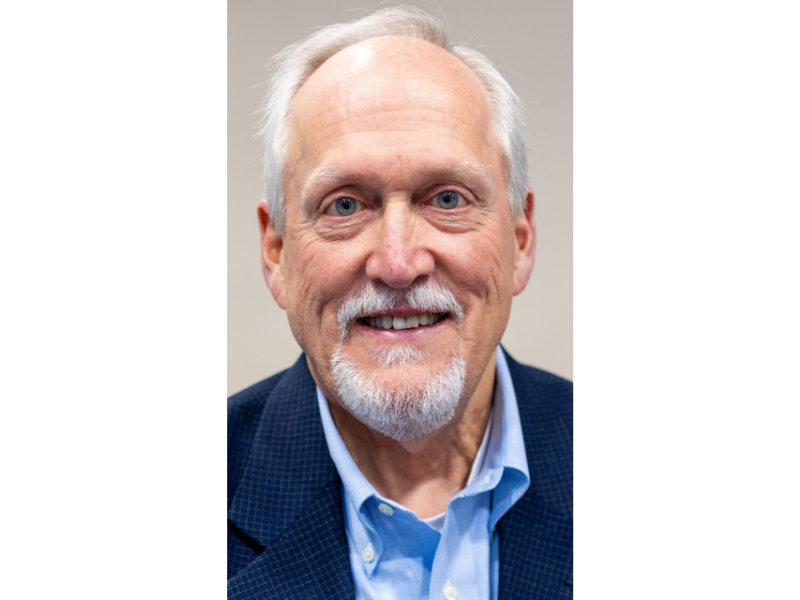By Audrey Anderson
Dr. George Beauregard, a local former internist and current health executive, discussed his book “Reservations for Nine: A Doctor’s Family Confronts Cancer” in the Community Room at the Medfield Public Library. The book was released on March 4.
Dr. Beauregard began his talk with an overview of his new book and a summary of his family’s tragic story facing the “emperor of all maladies.” Dr. Beauregard, himself, was diagnosed with advanced bladder cancer at the early age of 49 years and has now lived for twenty years with the disease. His son Patrick was diagnosed with stage four colorectal cancer at age 29 in 2017, just one month after his wedding. Patrick fought the disease with admirable courage for three years before he died in 2020.
Dr. Beauregard wrote his book over three years “filled with love and grief,” working to fulfill two objectives: to preserve his son’s legacy and to publicize the rising number of early-onset cancers. At his appearance, he first read chapter 1, “All We Have Is Today,” and then he answered questions from the attendees, pausing during difficult passages to collect his emotions.
According to Dr. Beauregard, his son Patrick seemed to be a “wise old soul from birth.” When faced with a difficult cancer diagnosis at the young age of 29, he impressed his father with his positive attitude. Patrick reacted to his diagnosis by saying, “I don’t see the point in being negative in this,” reasoning that doing so would “just lead to more negativity.” Dr. Beauregard admired Patrick as “a stronger man than I could ever be.”
During his illness, Patrick generously gave speeches and interviews, encouraging people to get cancer screenings. On March 3, 2020, he appeared on the “Today Show” with host Craig Melvin, who had lost an older brother to the same disease and continues to be an advocate for screening. On this show, Patrick was “calm, not sorry for himself, and happy to be an advocate for others.”
Dr. Beauregard noted that historically, colon cancer typically occurs in men at an average age of 68 years and in women at 72 years. Regarding the rising prevalence of early-onset cancers, a global phenomenon, over the last three decades, the incidence rate of early-onset colorectal cancer has been rising 2.2% per year. Men and women aged 20 to 49 years have increasingly been diagnosed with cancers at advanced stages, often having had the disease for a decade or so with no symptoms. In fact, many diagnoses are now made in emergency rooms, when the progress of the disease precipitates a crisis.
When asked for a personal message on the importance of screening, Dr. Beauregard contributed the following:
Like many diseases, cancer typically starts silently, so people developing it often lack signs and symptoms. It's well established that finding cancer precursors and/or in earlier stages leads to better treatment outcomes, survival rates and quality of life years. This holds true for cancers that have screening tests available, like breast, cervical, colorectal, and lung.
Some screening guidelines change over time. Due to evidence of cancer rates rising in younger people, the starting ages for breast and colorectal cancer have been expanded to 40 and 45 respectively.
A recent study showed that over the past 45 years, cancer prevention and screening resulted in lower cancer deaths.
Despite the widespread dissemination of information regarding the importance of screening, screening rates for certain cancers remain well below national goals. It's important that people discuss their personal risk factors and screening options with their healthcare providers to determine what's most appropriate for them based on their characteristics.






